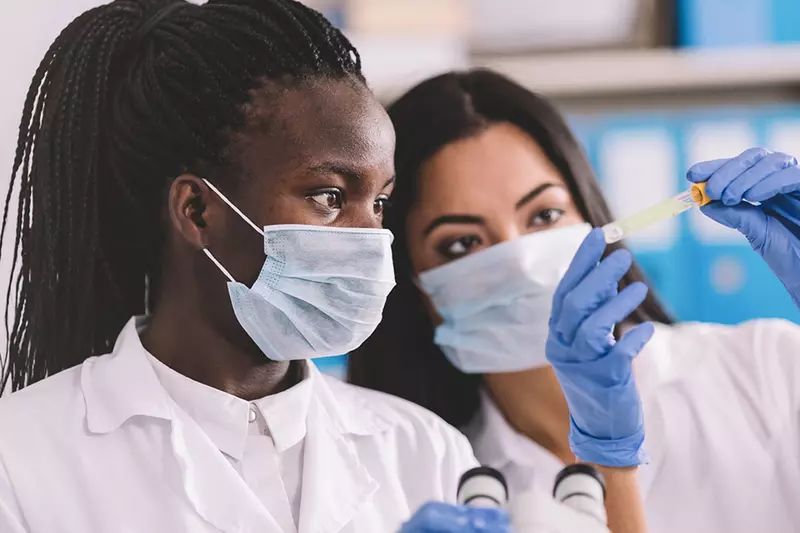- AdventHealth

Many people around the world have already gotten or are anxiously awaiting a COVID-19 vaccine. A handful of pharmaceutical companies have been able to start their vaccine distribution — a process that ordinarily could take years, achieved in a matter of months.
This understandably raises questions about how a vaccine could be developed so quickly. One reason is the use of messenger ribonucleic acid, or mRNA. Some COVID-19 vaccines, including those made by Pfizer and Moderna, are being made using synthetic mRNA, which drives protein production in cells to help defend the body against the virus.
What Is mRNA, and How Is It Used in Coronavirus Vaccines?
Some vaccine production methods for COVID-19 have been using mRNA to trigger the body’s immune system to produce protective antibodies without using the actual virus.
While vaccines for some other illnesses — such as the varicella (chickenpox) vaccine — actually use bits of the virus in the vaccine to create what’s called a “live virus vaccine,” the Pfizer and Moderna COVID-19 vaccines being produced do not contain a live virus.
Instead, some coronavirus vaccine candidates essentially work by using synthetic mRNA to direct the body to produce a small amount of the spike protein. Once the vaccinated person’s immune system detects this protein, their body begins producing protective antibodies to defend against coronavirus.
Experts say that the protective antibodies will recognize and prevent COVID-19 from getting into the body’s cells in the future, should that person be exposed to coronavirus.
What to Know About mRNA
This is the first time a synthetic mRNA vaccine is being widely distributed. The technology allows mRNA vaccines to be developed faster than traditional methods of vaccine development.
mRNA Isn’t a New Science
A Hungarian scientist named Katalin Karikó dedicated her time from the 1990s to today working toward mRNA use to fight diseases. In the 1990s, she was unable to gain a lot of support or funding because her ideas were so new and, some thought, hard to believe.
But, as the years have gone by, she and other scientists made more breakthroughs in research and experimenting, later being discovered by the (now) founders of BioNTech, the German partner of U.S. pharmaceutical companies Moderna and Pfizer.
mRNA Vaccines Are Coming Soon
With mRNA, what may look like a “new” advancement is actually science that’s been in the works for decades. Karikó is now the senior vice president at BioNTech, overseeing the mRNA work and research she started years ago, while major pharmaceutical companies are distributing the first mRNA vaccines for widespread use.
For many people across the world who are waiting for life to get back to “normal,” this progress is a shining light at the end of the tunnel. Now, when it’s your turn to get your shot — encourage their shot!
More Coronavirus News for You
We’re here for you every step of the way as new COVID-19 developments arise. Visit the Coronavirus Resource Hub for more news and updates from your trusted team of medical experts.


